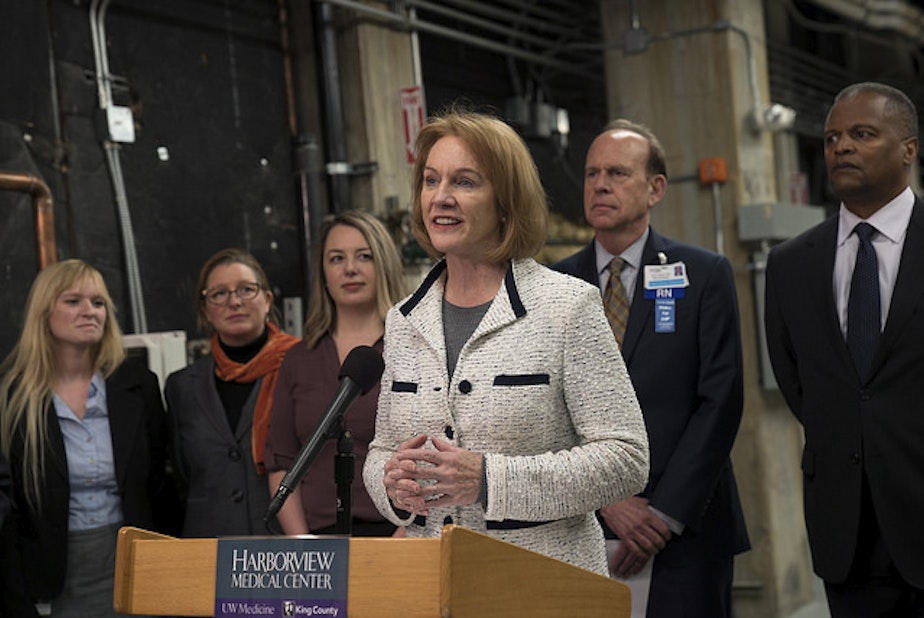Despite threats from feds, Seattle forges ahead on safe injection site

Seattle mayor Jenny Durkan confirmed Thursday that her administration continues to plan for a so-called “safe injection” site for drug users, despite threats from the U.S. Justice Department that such facilities are illegal and would face “swift and aggressive action.”
“We took note of what the Department of Justice wrote about this, we’re cognizant of it, but we believe strongly in a public health approach to substance abuse disorder," Durkan said.
Moving forward could put Seattle on a collision course with federal law enforcement.
Deputy Attorney General Rod Rosenstein argued in August that supervised consumption sites will only worsen the opioid epidemic and increase risk of exposure to fentanyl. He said violators of federal law could face felony charges or civil injunctions.
In the wake of those comments, Annette Hayes, the U.S. Attorney based in Seattle, told the Seattle Times her office will use “all the tools that are appropriate” to stop the sites.
Durkan will release her proposed budget Monday. She said it will preserve the $1.3 million dollars for a pilot project.
“You’ll see in the budget that we will continue to work for safe injection sites,” she said. “We want this to be part of a holistic system of treatment.”
Durkan said City Attorney Pete Holmes has been very involved in the discussions over how to move forward in the face of federal opposition. Holmes condemned Rosenstein’s view at the time, for continuing to criminalize “a growing public health epidemic.”
Last June, Seattle officials briefed the city council that they were seeking a location, likely downtown or in Belltown, where a fixed site could provide drug counseling. An adjacent mobile unit would allow people to smoke or inject illegal drugs under supervision from healthcare workers, who could revive people if they overdose.
It’s not clear whether the project has moved forward since then.
“We are not at the point where we’d be picking a site yet,” Durkan said Thursday. “We still have to get the framework with the county down.”
She said the city is negotiating with King County on how to fund operating costs, “to make sure anything we stand up would both be funded by the county and the city but also most importantly be a facility that really is about treatment and wellness and public health.”
A task force on opioid addiction has recommended that King County open safe injection sites. University of Washington researcher Caleb Banta-Green, who studies overdose prevention, was part of that group.
"There is good research evidence that safe injection facilities modestly improve health outcomes," Banta-Green said. "Probably more importantly, they fill a needed gap for the roughly 20 percent of people who are not ready to stop their use [of opioid drugs]."
The task force recommended creating two sites, one in Seattle and one elsewhere in King County. But several cities have since banned them.
There’s still the possibility that voters could ban the sites countywide. On September 18, the Washington State Supreme Court heard oral arguments on whether an initiative to ban the sites should be eligible for a public vote. If the appeal is successful, the earliest Initiative 27 could reach the ballot is February.
There were 379 fatal overdoses in King County in 2017, the sixth consecutive year in which those deaths increased.

